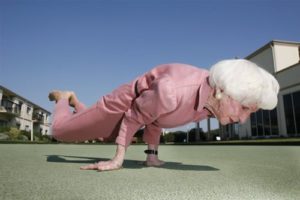
Physical fitness and overall well being is achieved when you exercise and eat balanced meals every single day. If you made the decision to make a complete lifestyle change to become healthier, it is imperative that you know how long you should be exercising.
Before you begin training, determine what your goals are. Working out is not just a decision you create on a whim. You have to plan it out, create a strategy and set goals. Building this framework will help you go through the expected challenges and succeed through the difficulties.
My Goal Is To Lose Weight
The health risks from obesity or being fat and overweight are not a secret. By simply carrying more body fat than normal, you already put yourself at risk of many weight-related health problems.
Weight loss is not an easy task. In fact, this is perhaps one of the most difficult goals when trying to become fit. If you truly want to lower down the numbers on your scale, you must not let your body settle on cardio exercises alone.
Strength training or muscle building is also vital in shedding those extra pounds. And when you throw in varying levels of difficulty through interval training, you keep your body in constant flux.
It is recommended by health experts that you exercise three to five days a week. For beginners, it is advised that you only aim for three days and one rest-day in between. This schedule helps you build your stamina and strength while losing weight without the worries of possible injuries or burnout.
When you start to feel more comfortable with your training, you can gradually increase the intensity and the number of days from three to five days a week.
My Goal Is To Build Muscle Mass
Once you feel more confident about exercising, you can now move on to strength training to build your muscle mass.
Many experts recommend that weight training or any resistance exercise should not be performed everyday. For every effort you exert, you actually create small tears in your muscle fibers. These micro-injuries need to recover and it would take approximately 24 to 48 hours for your muscles to completely heal and repair themselves.
If you are still at the beginning of your fitness routine, make sure to start at a lower intensity. Space out your weight training to give your fatigued muscles the chance to recuperate and fully recover. This will allow them to grow bigger and stronger.
Strength training should last for 45 minutes to an hour. Make sure that you incorporate this form of exercise 3 times a week, every other day. As muscles need time to build and grow, avoid targeting the same muscle groups for two sessions in a row.
Always remember to stretch out your muscles before and after for best results.
My Goal Is To Maintain A Healthy Weight And An Active Lifestyle
If you have achieved your fitness goal, the American Heart Association recommends 75 minutes of high-impact exercises and 150 minutes of moderate-impact exercises weekly to stay healthy.
Though it does not seem to be much, following this recommendation can already benefit you by reducing your cholesterol, normalize blood sugar levels, improve cardiovascular health, lessen the risk of chronic inflammation and elate your mood.
No matter what your age is, finding a routine that works for you is an easier way to stick to a healthy lifestyle. The trick in achieving top physical fitness is sticking to the routine you have created until you hit your goal.
Do not worry too much if you get side tracked. Falling behind is part of the process. Just stay focused and be conscious with your eating habits, sleeping patterns and exercise program. It will be difficult at the beginning, but soon enough, every activity will come to you as a breeze.

 Aging can be rough on some people. As we get older, there are certain things that can become more difficult, and that includes weight loss. For some reason, the more we age, the more we grow our craving for food. And if we don’t take measures in controlling our weight as we age, consequences can be dire.
Aging can be rough on some people. As we get older, there are certain things that can become more difficult, and that includes weight loss. For some reason, the more we age, the more we grow our craving for food. And if we don’t take measures in controlling our weight as we age, consequences can be dire.